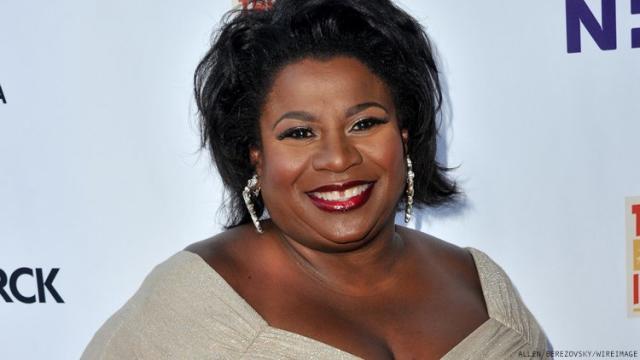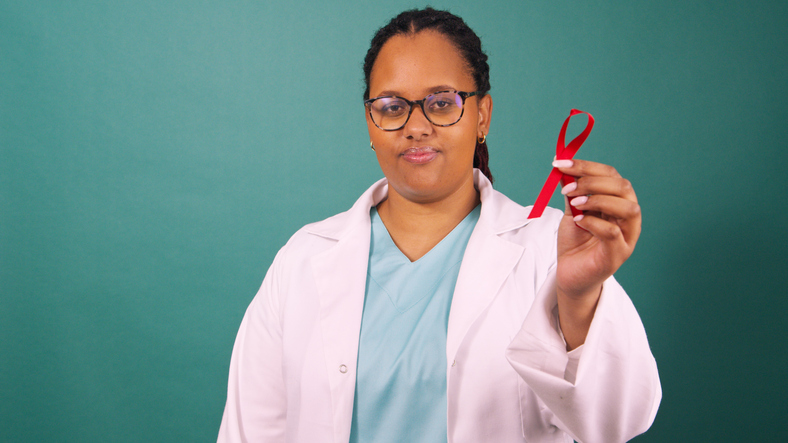HIV Activist Grazell Howard Black AIDS Institute Interview
AIDS Awareness Month — Black AIDS Institute’s Grazell Howard Reflects On 25 Years Of Fighting To End HIV Stigma
For more than 25 years, the Black AIDS Institute has been on a mission to uniquely and unapologetically address HIV in America, as the disease is still more relevant today than it was when it was first uncovered in 1981.
In 2023 alone, 44% of the new HIV cases were found amongst young Black women and girls globally, which is why BAI chair of the BAI Board of Directors, Grazell Howard, refuses to let up in lending her voice to the fight against HIV through awareness and science.
“The seminal point for the Black AIDS Institute over the 25 years was the foresight and the courage to know that Black people in these yet United States needed our voice in HIV,” Howard told MadameNoire. “And when HIV emerged, not only did it frighten people, it shocked science. So now, we’ve lived long enough, or I have to remember the advent of HIV and COVID.”

Grazell Howard. Source: Black AIDS Institute
When asked what the biggest misconception around HIV that still exists today, Howard says it is still that HIV is not a gay disease.
“HIV does not discriminate,” she explained. “And the challenge for Black women, specifically, is that HIV enters an area where, culturally, we are encouraged to remain silent. We don’t speak about sex. We don’t speak about our sexuality. We don’t speak about our eroticism. We don’t speak about our relationships actively, openly, publicly.”
She added, “The second misconception is that we no longer have to focus on it. And let me truncate all of that and say the number one misconception in America, in these yet United States, is that we’re not all in it together. If a person in your family is in your household and they’re diagnosed with HIV, then everybody can come to that clinic, so the baby or the grandparent. Why? Because HIV affects the entire family, what is the number one job of Black women in America around HIV? We’re the only ones who can remove the stigma. We’re the only ones who can ensure that we know our status, that everybody in the family gets tested, and that we can live healthy, safely, as long as we want, how we want.”

When asked what the biggest misconception around HIV that still exists today, Howard says it is still that HIV is not a gay disease. Source: Meeko Media / Getty
World AIDS Day
First celebrated in 1988, World AIDS Day, the first global health day, is observed every year on Dec. 1 as a time to both bring awareness to the disease and honor those who have died as a result of it while also supporting individuals currently living with HIV.
“I entered this world as a volunteer,” said Howard. “As a woman who happens to be Black in this carnation, I know our role, my ancestors, and our role on the planet, and specifically for the race, is to advance us. And so for Black people to bend the tide of HIV in our community, it requires Black women to hold the faith-based accountable and say to God that we know loves all of us. You may not understand all aspects, but we must understand the gender non-conforming, the non-binary, the transgender man and woman, the heterosexual women, the heterosexual men, and the young who are trying to figure out all these new alphabets, these new messages, and this is where we must return.”
The Importance of Hydeia Broadbent
For her, some of the aha moments centered around the work that decades-long work she’s been doing have come from spending time in the subculture of Black America, in spaces like the Kiki Ballroom community, amplifying the stories of people like Hydeia Broadbent, the HIV/AIDs activist who lived with HIV for her entire life, taking part in trials and treatments for the disease at the age of 3.
Born with undiagnosed HIV in 1984, it wasn’t until 1987 that her adoptive parents learned that she was HIV-positive, and throughout her childhood up through her passing in February 2024, she made public appearances to raise awareness around the disease, which during the 1996 Republican National Convention, Broadbent described as a “life sentence.”
“Hydeia Broadbent was a beautiful Black girl born with HIV, but the laws aren’t named after the child who was born with HIV,” Howard explained. “The laws are named after a little white boy who contracted HIV in the healthcare system. That should level it right there. Broadbent had and did and could live a thriving life with HIV. Had, could, and did. What killed Hydeia Broadbent are all of the other things associated with HIV.
“It doesn’t matter. I could be straight, gay, or bi, but I want to have a loving relationship. I want to have somebody I know loves me,” Howard continued. “Those are the things that when you’re living with HIV become a struggle, depression, and despair. How do I tell the great guy that I just bet that I want to love him, but I am HIV-positive, and I was born with it? How do I know and manage day-to-day that are called dandelions, self-proclaimed, that’s what they call themselves if they’re born with HIV? How can I be a dandelion and not see the statistics that I get disease-ridden, other diseases, comorbidities, diabetes, and hypertension faster and earlier in life? These are the kind of things that took down a beautiful, smart, funny, kind, gentle woman.”
When she reflects on the 25-plus years that the Black AIDS Institute has actively been spreading awareness around HIV through taking screenings down to Essence Festival, visiting college campuses to help fight the good fight, and the amount of blood, sweat, and tears that the organization has put into supporting those living with the disease, Howard acknowledges how far society has come when it comes to the disease, while still understanding how far we have to go.
“Speak the names of those gone on way back when we didn’t know when they were ashamed to see us, but you could call on the phone, and then they get so weak they couldn’t talk on the phone. Speak their names,” said Howard. “Speak the names of many more people who have done way more than me, like Cornelius Baker, like Deborah Fraser-Howze, Ivy Turnbull, Ernest Hopkins, speak the names. Speak the names of those who are gone on. Speak the names still advocating daily, and take care and self-love. Know your status. We know how you can contract HIV. We don’t know how you can contract COVID, but if I say I have COVID, you will run to the house, leaving chicken soup. If I say I have HIV, you won’t give me water; let me use the bathroom.”
Click here now to learn more about how to join the Black AIDS Institute or how to amplify its mission across the nation.
RELATED CONTENT: 7 Black Women Activists We Honor This National Black HIV/AIDS Awareness Day









